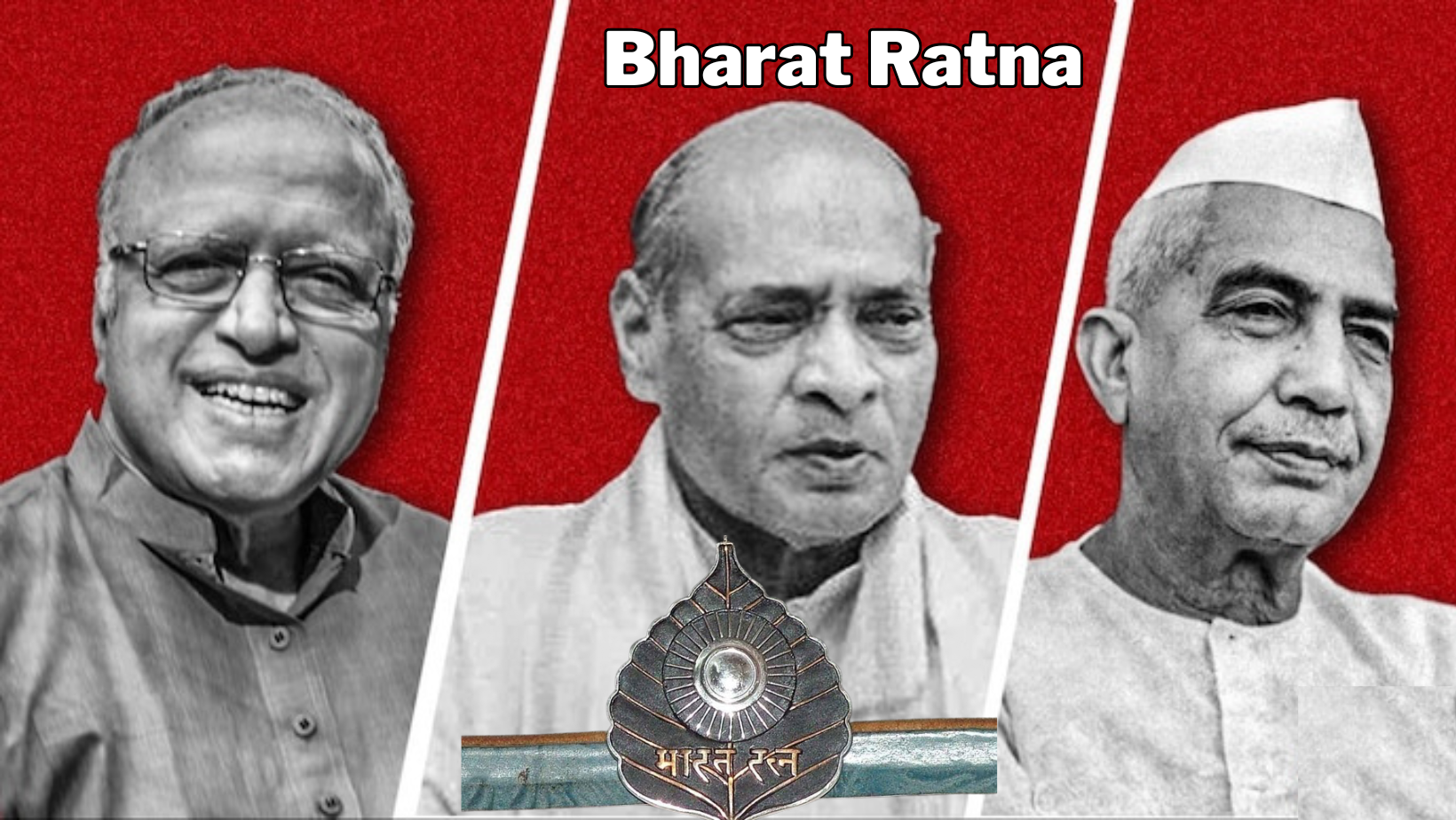Bharat Ratna for former PMs Charan Singh and PV Narasimha Rao, scientist Swaminathan (Indian Express)

- 09 Feb 2024
Why is it in the News?
The Union government on February 9, 2024, announced former Prime Ministers Chaudhary Charan Singh, P.V. Narasimha Rao and agriculture scientist M.S. Swaminathan will be honoured with the country’s highest civilian honour, the Bharat Ratna posthumously.
News Summary:
- The government recently conferred the Bharat Ratna for former Prime Ministers Chaudhary Charan Singh and PV Narasimha Rao and agricultural scientist MS Swaminathan, who is known for his leading role in India's 'Green Revolution', posthumously.
- Earlier, the government had announced Bharat Ratna, for veteran BJP politician LK Advani and socialist icon and former Bihar Chief Minister Karpoori Thakur.
Who was PV Narasimha Rao?
- Pamulaparthi Venkata Narasimha Rao (28 June 1921 – 23 December 2004) was a lawyer and a towering Congress leader in undivided Andhra Pradesh, who became the 9th prime minister of India.
- He ruled the country between 1991 and 1996.
- In 1991, when India was facing a foreign reserves crisis, Narasimha Rao's government brought about three big-ticket economic reforms -- globalisation, liberalisation and privatisation.
- PV Narasimha Rao was the first person from South India to become the prime minister of India.
- He was born in a Telugu Niyogi Brahmin family in the Laknepalli village of Narsampet mandal, Warangal.
- The district is currently in Telangana.
- He was a freedom fighter who took part in Hyderabad's Vande Mataram movement in the late 1930s.
- After Independence, PV Narasimha Rao became a full-time politician.
- He was elected as an MLA for the first time in 1957.
- Till 1971, he assumed many ministerial positions in the state government. He became the chief minister of Andhra Pradesh in 1971.
- He was known as an Indira Gandhi loyalist and supported her in 1969 when the Congress vertically split into two parts.
- Rao also served as a member of parliament from Andhra Pradesh and handled home, defence and foreign affairs portfolios as a central minister.
- In 1991, he had almost retired, however, he came back to active politics after the assassination of Congress President and Prime Minister Rajiv Gandhi's assassination.
- He was also the first Congress PM outside the Nehru-Gandhi family.
- He broke several conventions as the prime minister.
- He appointed economist Manmohan Singh as his finance minister.
- Together, they brought about economic reforms.
Who was Chaudhary Charan Singh?
- Chaudhary Charan Singh was born in a middle-class farmer family in Meerut in 1902.
- He started his political career with the Congress.
- He was first elected to the Uttar Pradesh assembly in 1937 from Chhaprauli and later got re-elected in 1946, 1952, 1962 and 1967.
- Chaudhary Charan Singh was appointed as a parliamentary secretary in Govind Ballabh Pant's government in 1946.
- He worked in several departments before being appointed a cabinet minister for justice and information in 1951.
- In 1967, he quit the Congress and became the chief minister of Uttar Pradesh for the first time after being elected as the leader of the Sanyukta Vidhayak Dal coalition.
- He became the chief minister for the second time in 1970.
- In 1979 after the Jana Sangh (BJP's predecessor) pulled out of the 18-month-old Morarji Desai-led Janata Party government.
- Congress (I) decided to extend support to Chaudhary Charan Singh who took oath as prime minister on July 28, 1979.
- But before he could prove his majority in the Lok Sabha, Indira Gandhi withdrew support to his government and Singh resigned.
- He continued to remain as caretaker PM till January 14, 1980.
Who was MS Swaminathan?
- M.S. Swaminathan is an eminent Indian agricultural scientist and geneticist hailed as the "Father of the Green Revolution" in India.
- Born on August 7, 1925, Swaminathan's groundbreaking research and advocacy have significantly contributed to India's agricultural development and food security.
- He played a crucial role in introducing high-yielding varieties of wheat and rice, which revolutionized agricultural productivity in the country during the 1960s and 1970s.
- Swaminathan has received numerous awards and honours for his contributions to agriculture and sustainable development, and he continues to be a leading voice in global efforts to address food security and environmental sustainability.
